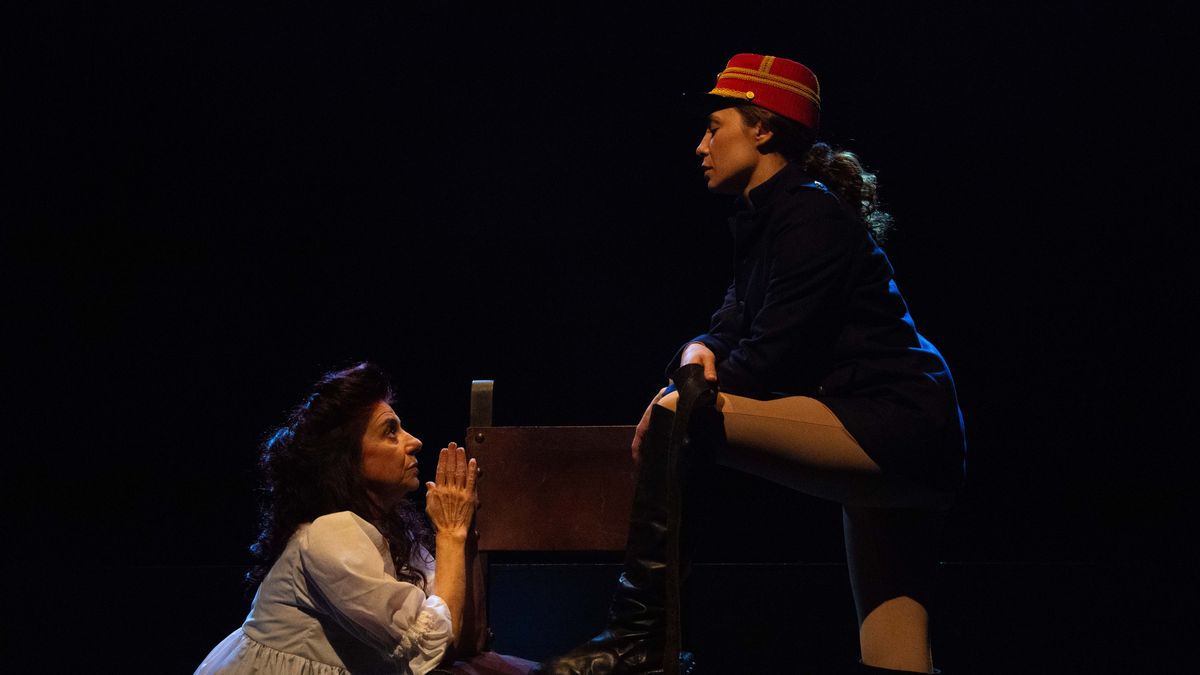“Theater is the encounter in a world where virtuality moves us more and more. It is our way of keeping Argentine memory alive. When we do theater, the ritual begins ”, says Fabi Maneirodirector of “The cry and silence”, of Palomino jungle that premieres tomorrow at Andean 90 with functions on Fridays at 20.30.
With actions of Gabriela Villalonga and Luciana ProCaccini addresses a real story around the figure of Julio Argentino Roca. We talked with Maneiro
Journalist: The work recovers a little known story by Julio Argentino Roca but from the optics of two women, how is that link that unites them?
Fabi Maneiro: These two women, mother and daughter are united by an indestructible bond despite them. And I say “despite them” because none wanted to be part of this story. Ignacia Robles is the woman that Julio Argentino Roca had captive during a week in which he exercised on her the power to specify her darkest desires and who, with only 14 years, becomes pregnant. Soon Carmen Robles born, a daughter who carries the maternal last name because she was never recognized by her father. Both struggle to free themselves and face Roca; each from its place and time.
Q.: What can we say about the figure of rock and what is valid today?
FM: Roca is a controversial character within Argentine history, especially because of the violence and destruction that caused the desert campaign. Someone who is able to lead this type of bloody and dehumanized actions, is capable of anything. This figure that wrote our history with blood, reappears cyclically. Today, in this turbulent society in which we are living, the violence that is exercised against those that defend the acquired rights, the destruction of the State, the repeal of laws that took years of struggle, the abuse of power, the destruction of culture and its institutions, brings us closer to the darkest moments of our history. Every day rights are overwhelmed and the peaceful demonstration is prohibited to claim for them.
Q.: The work addresses topics such as Abuse, manipulation, gender violence, patriarchy, all topics very today, how are they updated from Roca?
FM: In the work we see how this same violence is exercised on Ignacia Robles and consequently on Carmen, her daughter. But if we did not know that the work is based on them and their relationship with Julio Argentino Roca, the viewer might believe that this is happening today, beyond the real story we tell. The past returns cyclically.
It moves to see a historical fact of this nature and feel that it is happening today. It is necessary to be reflected in this type of theater.
Q.: What is the social and cultural political inheritance you left?
FM: The campaign carried out by Roca meant the destruction of the culture and traditional life of indigenous peoples, the loss of their lands and resources and the destructuring of their communities. In the work the Roca character has a text that says “Argamasa in my hands was this country.” These words, today they return like an echo.
Q.: What is left today of the open theater political or similar theater?
FM: Argentines have the culture of resisting through art. The open theater spirit is always present. Every year the theater cycles for identity, theater for justice … to name just a few are held. Of course, then there is the type of theater that each one decides to address, for example I direct a female group that addresses gender issues, the role of women in society of all time. In our last production, Chrysalis, for example, are present from Artemisia Gentileschi a 17th -century painter that was raped by her teacher, to the mothers of Plaza de Mayo and Milagro Sala.
Q.: Many are doing works for, as you say, Exorcise fears, to dare, to fight for a more just society. What else can you say about theater today?
FM: I think the more they want to silence us, the more necessary and urgent this type of theater is. Crises work as an engine for creation. It is our way of expressing us, of being present.
Source: Ambito
I am an author and journalist who has worked in the entertainment industry for over a decade. I currently work as a news editor at a major news website, and my focus is on covering the latest trends in entertainment. I also write occasional pieces for other outlets, and have authored two books about the entertainment industry.

